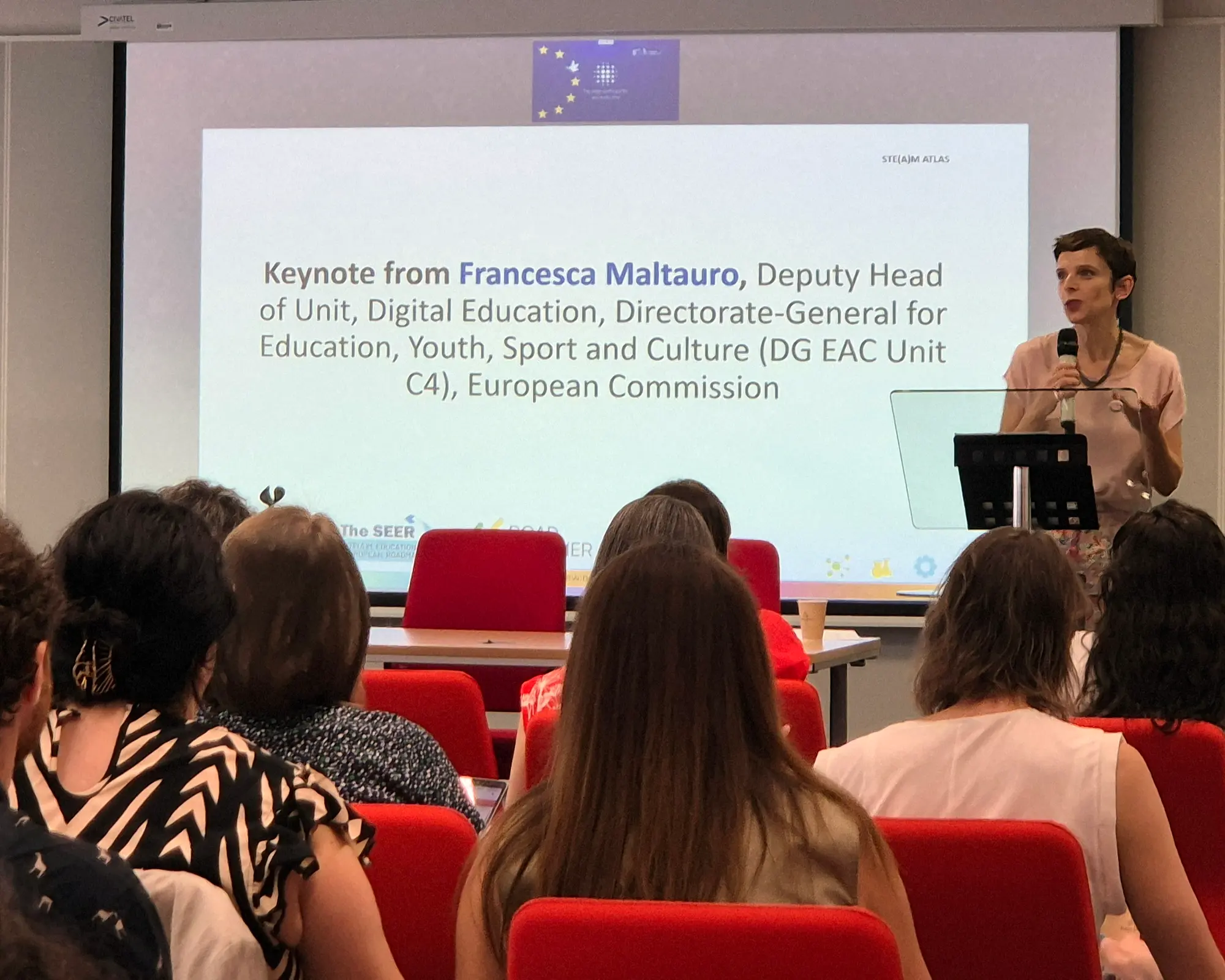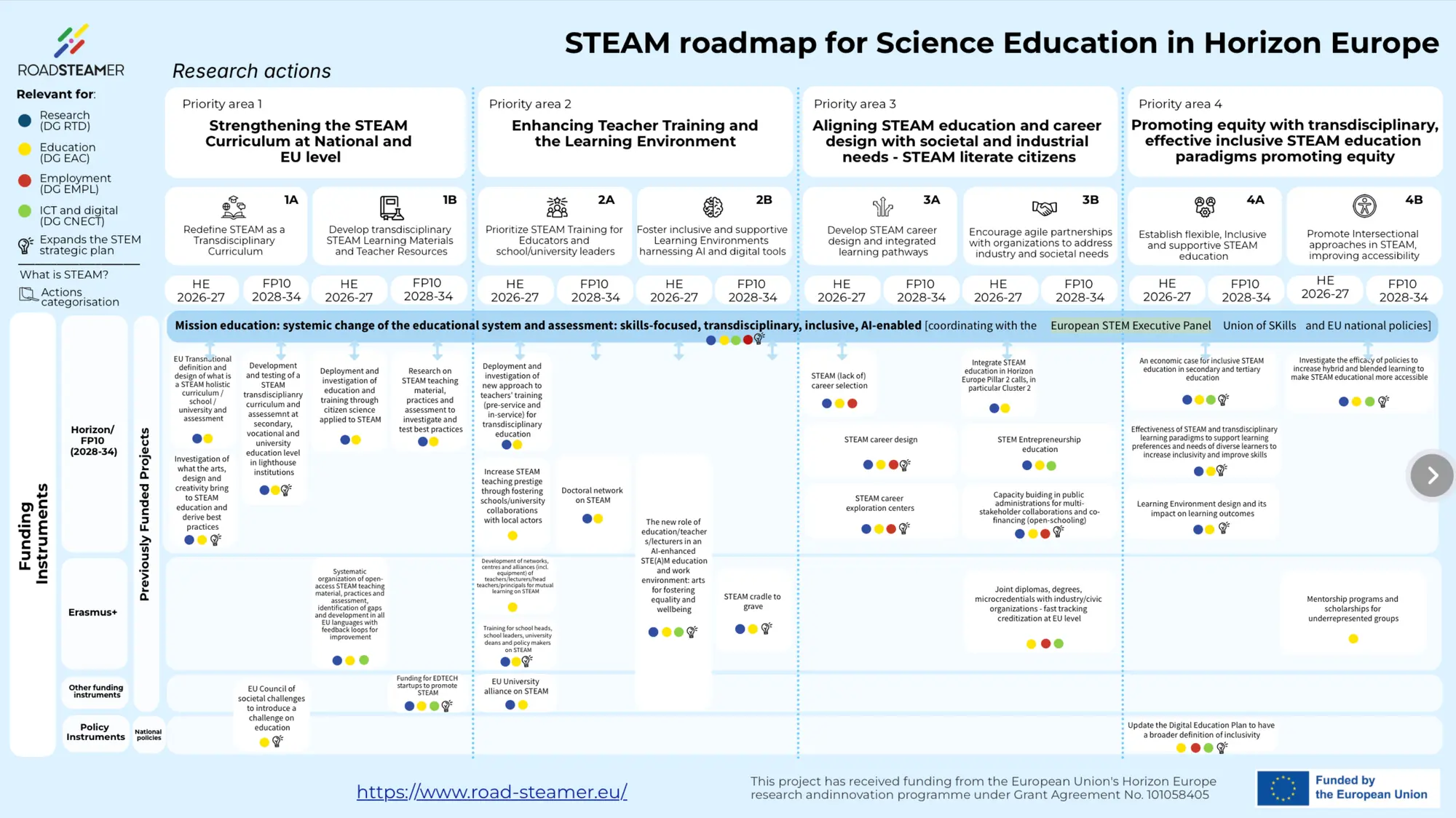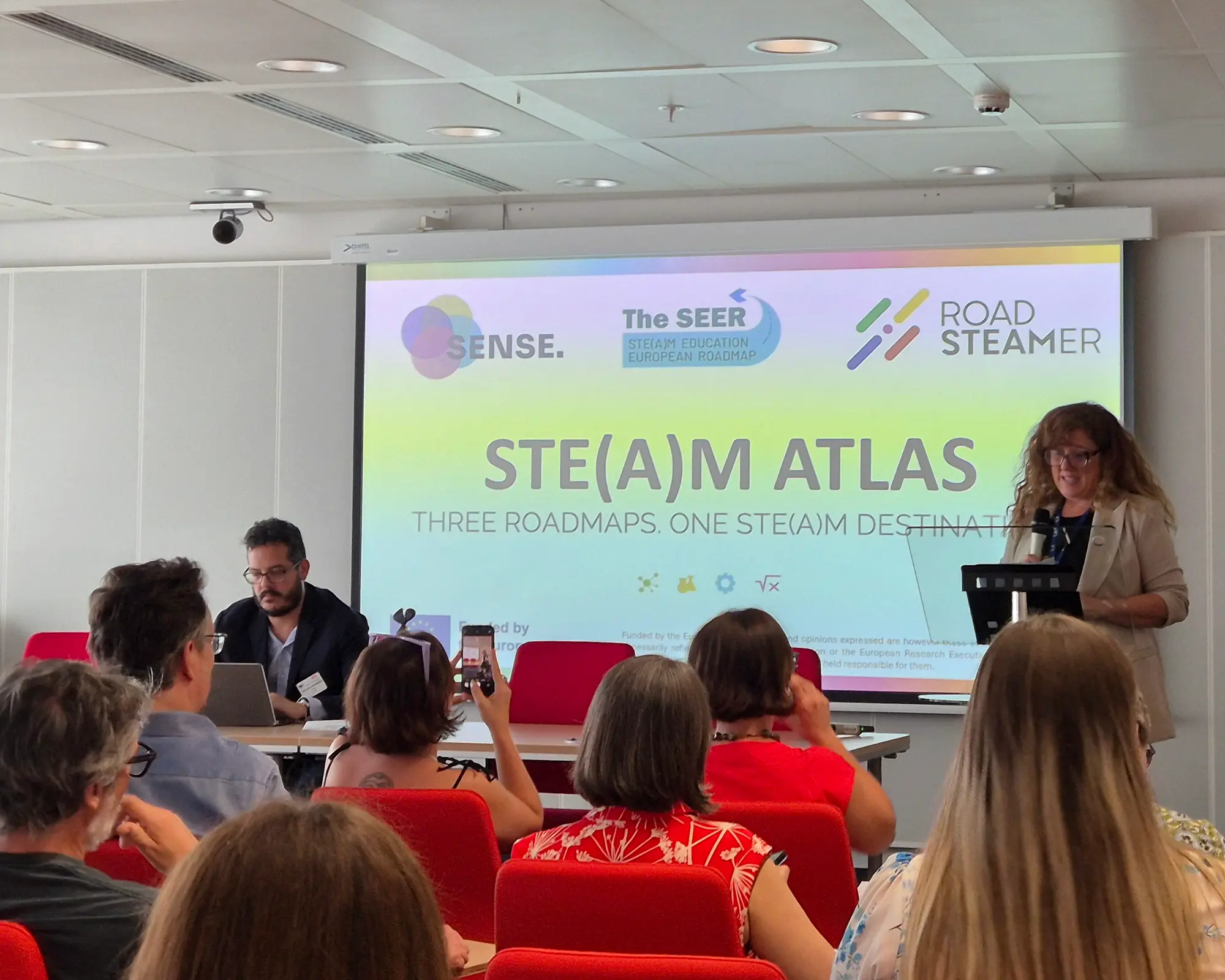The Road-STEAMer roadmap was presented at the European Commission during the 'STE(A)M ATLAS' event
Horizon Europe project Road-STEAMer
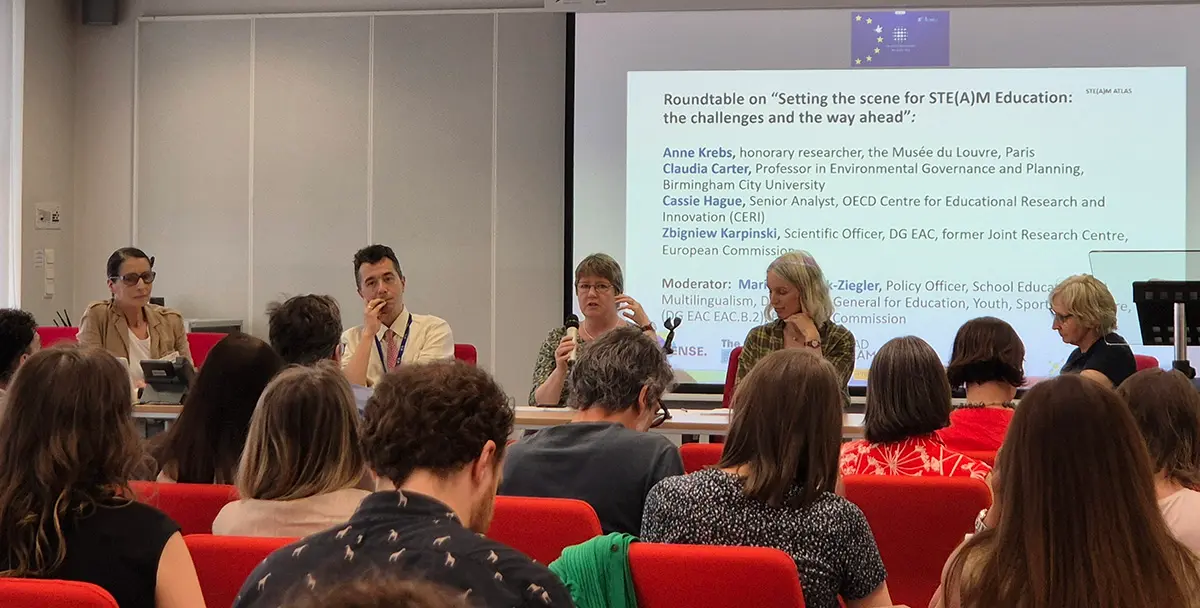
The Department of Design contributed to the project Road-STEAMer, playing a key role in developing the interactive roadmap for STEAM Education research within EU funding programmes. The roadmap, the result of a three-year collaborative effort, was presented at the European Commission during the 'STE(A)M ATLAS' event, alongside related projects. It outlines strategies to foster innovation in European education systems, focusing on inclusivity, flexible learning environments, and career guidance.
The Horizon Europe research project Road-STEAMer aims to develop a STEAM roadmap for science education, a strategic plan that offers guidance to the EU’s key research and innovation funding programme on how to foster greater interest in STEM subjects by integrating artistic approaches. This involves promoting creative thinking and the applied arts — the 'A' in STEAM.
The roadmap was recently presented at the European Commission, marking a major milestone and the culmination of three years of work by the Road-STEAMer consortium. The Department of Design played an active role in the project, with a team composed of Sabrina Bresciani, Francesca Rizzo, Sunit Joseph, and Yuhao Jiang leading the development of the interactive roadmap.
The roadmap was presented at the event 'STE(A)M ATLAS' organized on July 2nd jointly with the 3 projects funded under the same call, the SEER and SENSE.STEAM collectively forming the Atlas to STE(A)M Education in Europe.
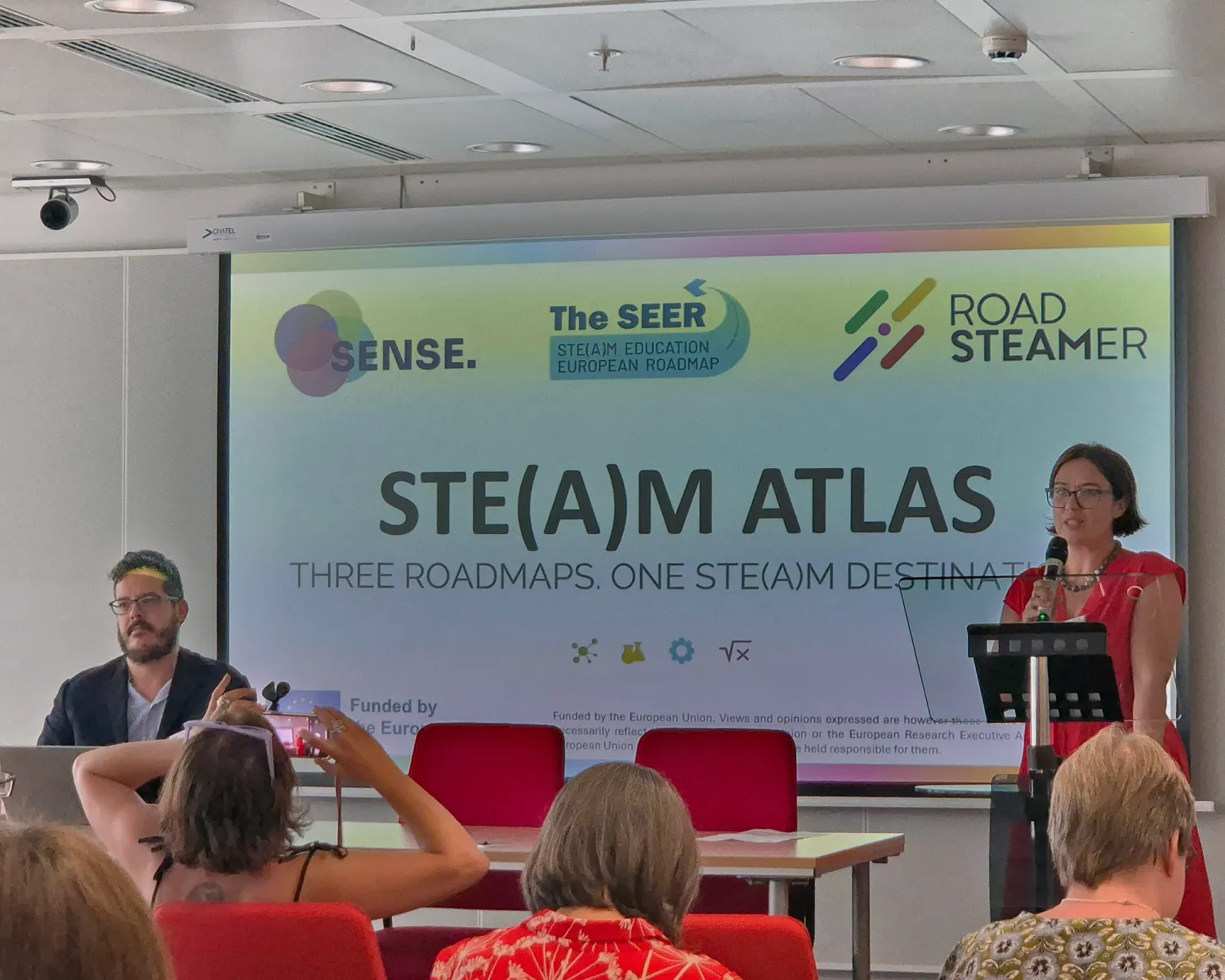
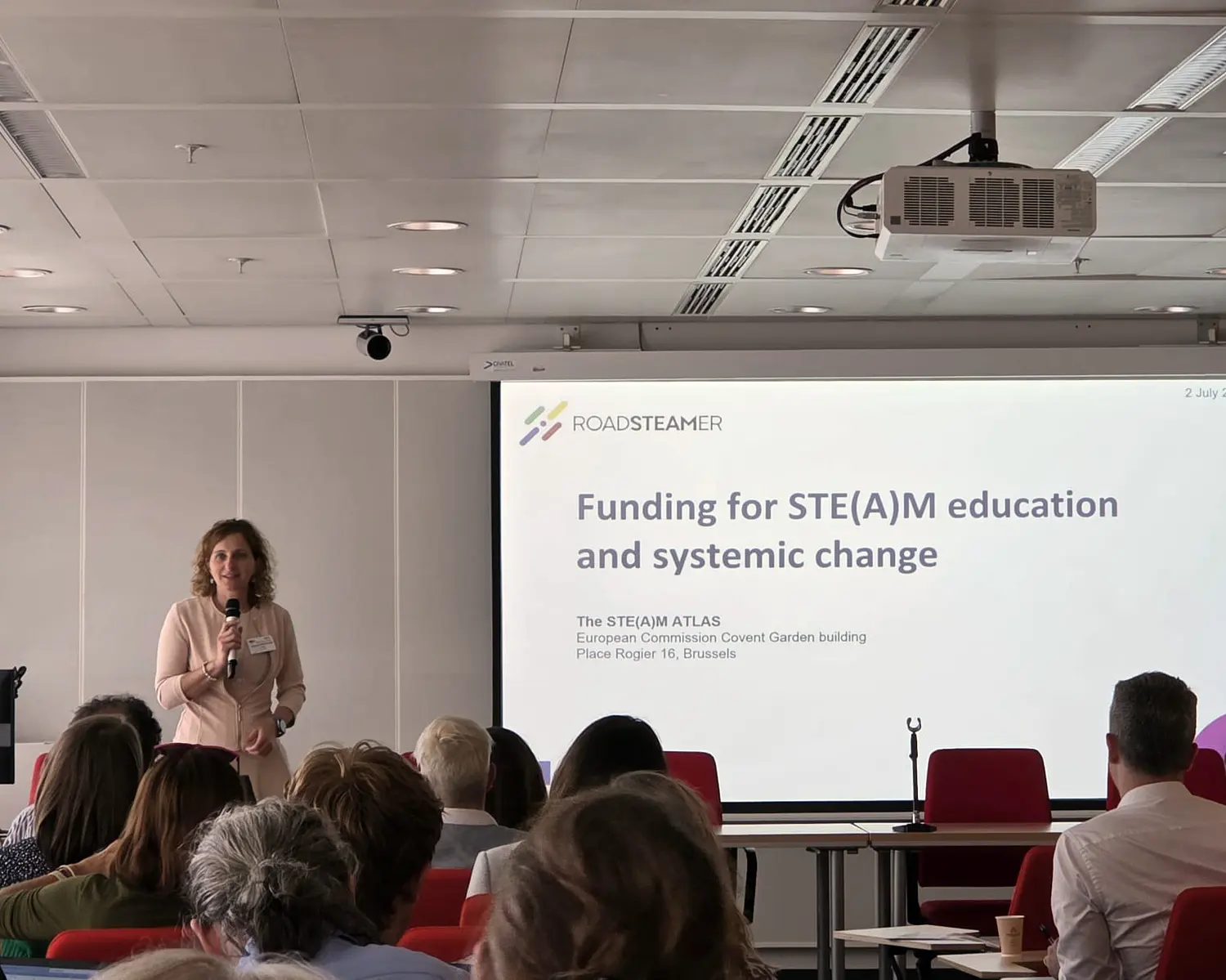
The day opened with remarks from European Commission representatives, including Maria Mecenero (DG RTD), followed by a keynote speech from Francesca Maltauro, Deputy Head of Unit for Digital Education at the Directorate-General for Education, Youth, Sport and Culture, who presented the EU STEM Education Strategic Plan, part of the Union of Skills agenda.
The event also featured participatory sessions and a roundtable discussion moderated by Maria Podlasek-Ziegler, Policy Officer for School Education and Multilingualism at the European Commission (DG EAC). The panel included:
- Anne Krebs, Honorary Researcher, Musée du Louvre, Paris
- Claudia Carter, Professor of Environmental Governance and Planning, Birmingham City University
- Cassie Hague, Senior Analyst, OECD Centre for Educational Research and Innovation (CERI)
- Zbigniew Karpinski, Associate Professor of Sociology, Institute of Philosophy and Sociology, Polish Academy of Sciences, Warsaw
This final event of the project builds upon multiple iterations of co-creation and dialogue with the European Commission, culminating in the working lunch 'STEAM Education – The road ahead', held in Brussels on April 30th at the presence of representatives of the European Commission and industry players. The event was organized by The Lisbon Council, and was followed by the high-level 2025 Skills Summit – Transforming STEM Education for Competitiveness and Social Fairness, opened by European Commission Executive Vice-President Roxana Minzatu.
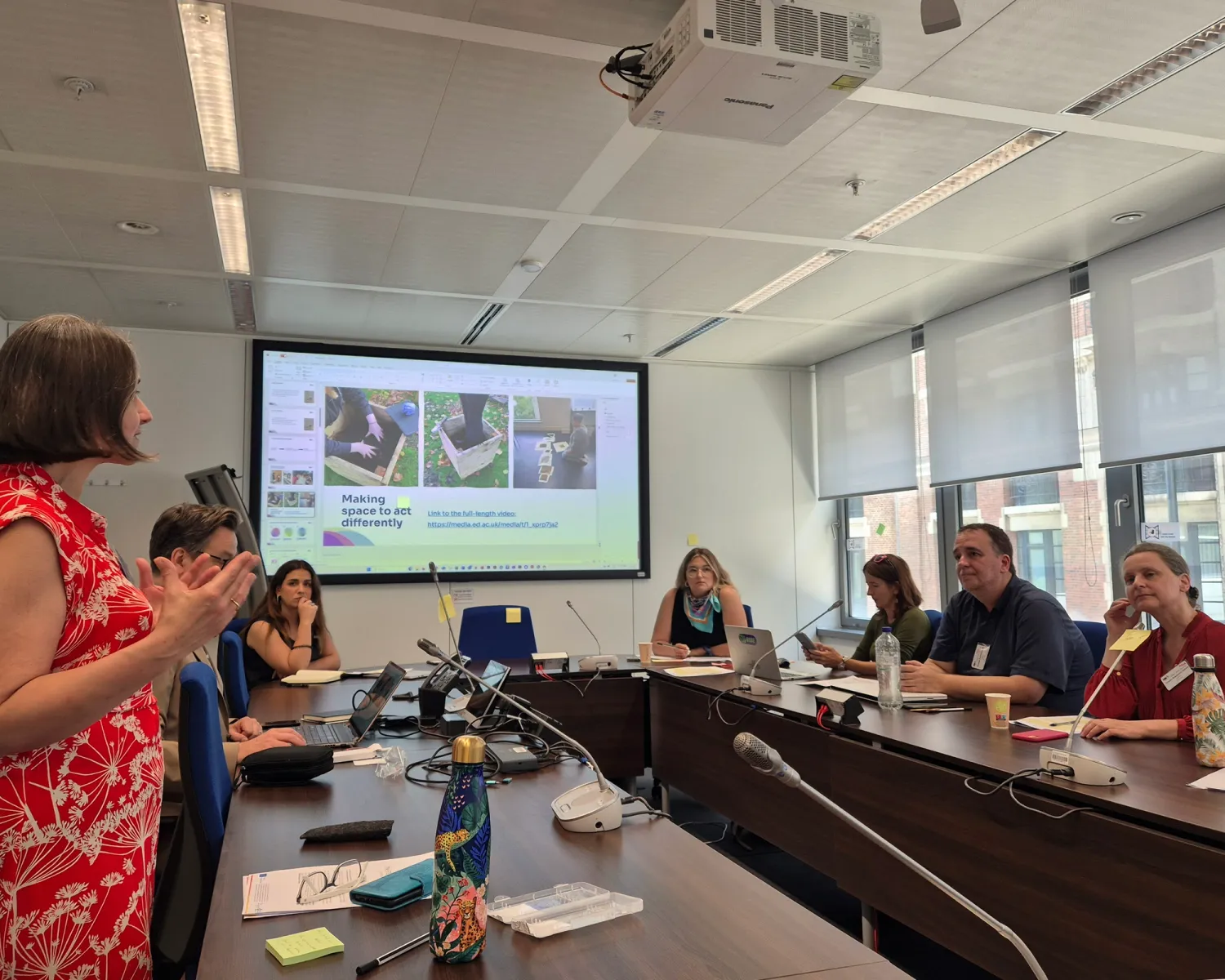
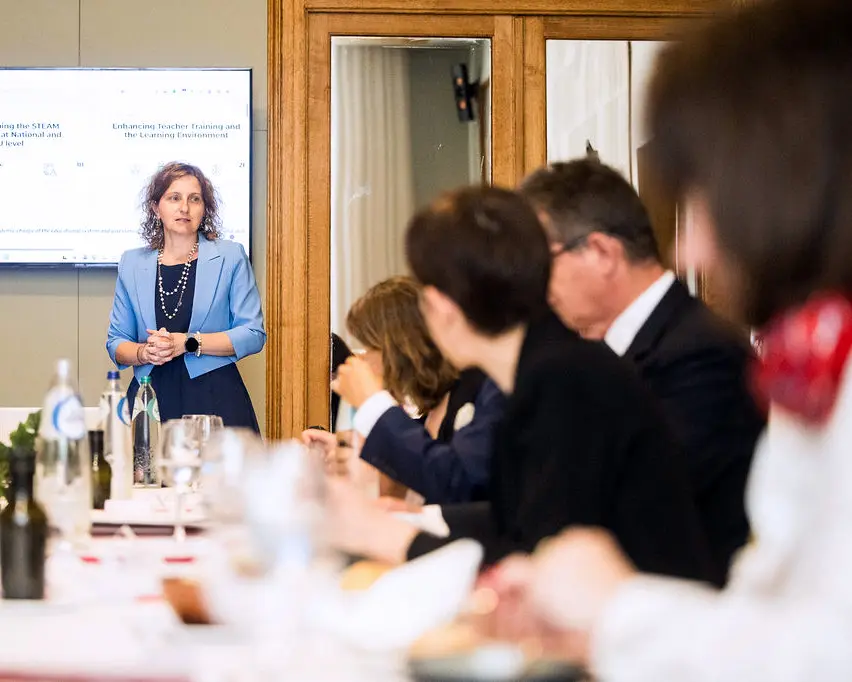
The Road-STEAMer projected roadmap aligns with the EU STEM Education Strategic Plan and the broader Union of Skills framework, proposing three main directions for future research:
- A Mission on Education: supporting systemic innovation of educational systems and assessment practices, focusing on skills, transdisciplinarity, and inclusiveness, enhanced by digital education technologies, artificial intelligence, and multi-stakeholder collaboration.
- Flexible and Inclusive STEAM Learning Environments: investigating the effectiveness of AI-driven, blended, hybrid, and online learning models; and exploring the sensory and spatial dimensions of learning environments, suitable for learners with sensory sensitivity or on the autism spectrum, aiming to foster creativity, motivation, and equal access across socio-economic backgrounds.
- Career and Life Design Pathways: strengthening connections between education, industry, and organizations to support students in discovering meaningful career paths, increasing well-being, promoting entrepreneurship, and encouraging uptake of STEM careers.
